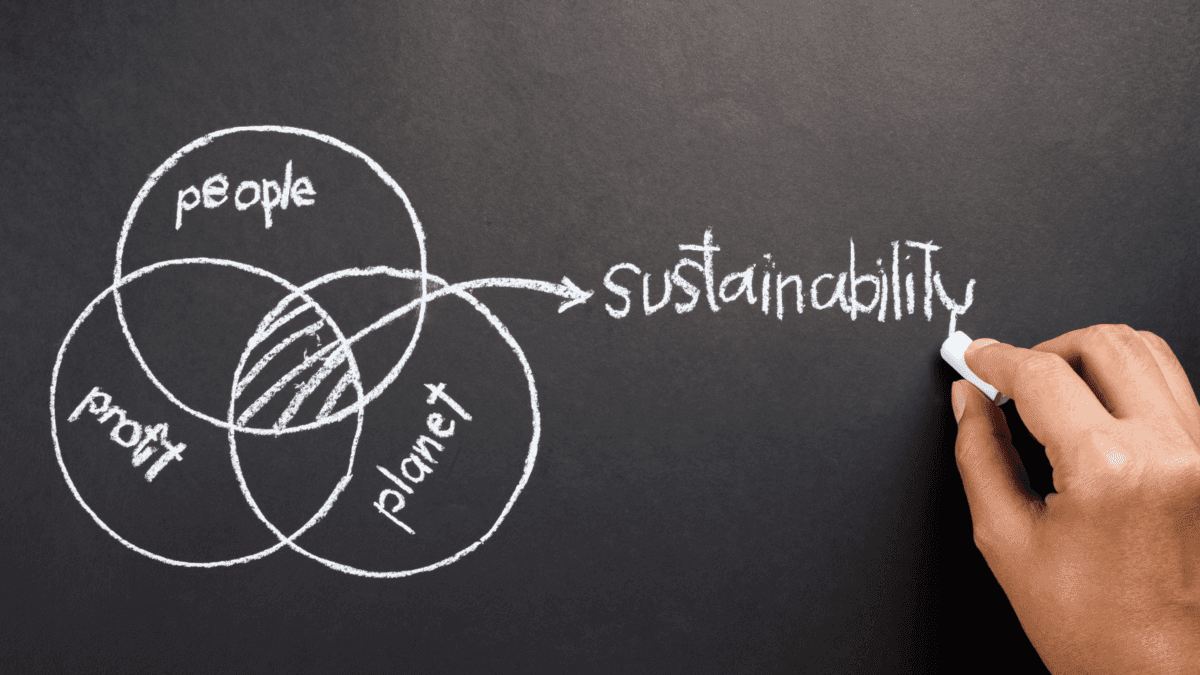New research by Australia Post and the Banksia Foundation looks at key issues that SMEs are facing when it comes to small business sustainability in a post-COVID world.
The study shows that almost half of SMEs in Australia, which make up 98 per cent of businesses and employ almost half of the nation’s workforce, see sustainability as a key driver for their future growth and success.
The Small business sustainability in a COVID-19 world report, which is part of a broader effort by the researchers to advance the UN Sustainable Development Goals (SDGs), suggests that sustainability is critical for the long-term survival, security, and competitive advantage of small businesses.
Key findings
1. Operating responsibly
The small business sustainability report found that SMEs are motivated to operate responsibly for three main reasons:
- Balancing purpose and profit: profit is crucial to ensuring financial sustainability for all businesses, but many SMEs are seeking to balance purpose and profit by establishing themselves as a force for good.
- Changing stakeholder expectations: a shift in generational thinking means more conscious consumers and purpose-driven employees who expect SMEs to be proactive in their sustainable practices.
- Future-proofing the business: SMEs recognise that sustainable business practices are necessary for long-term survival, but they can only thrive if the communities they serve and operate in are also sustainable.
SMEs identified three important issues at the heart of their sustainability practices:
- Reducing waste and rethinking materials: SMEs see waste as a burning issue and are reevaluating the materials they use in their products, while focusing more on reuse and recycle operations.
- Sustainable packaging: e-Commerce-focused businesses consider packaging to be a significant concern, and one in three SMEs are now committing to Eco-friendly packaging for their products.
- Supporting local communities: 38 per cent of SMEs said that they integrate community support into their sustainability approach, with many focusing on philanthropy, sponsorship, and initiatives that stimulate local employment.
2. Building resilience
SMEs identified three ways to build greater resilience in response to weakened supply chains and a lack of contingency planning:
- Rethinking supply chains: Many SMEs will need to consider how they can reshore production and integrate diversity into new and existing supply chains.
- Transitioning to a circular economy: SMEs may benefit from coming up with new business processes, connections and ways of linking the supply and manufacturing chain as natural resources decline and supply chains are disrupted.
- Digital disruption: SMEs should be looking to adapt to online environments in the post-COVID world of social distancing, self-isolation, and the closure of bricks and mortar stores if they are to remain viable.
3. Regeneration in a world impacted by COVID-19
The SDGs serve as a global blueprint for creating a world that is comprehensively sustainable: socially fair, environmentally secure, economically prosperous, inclusive, and more predictable.
Adapting to sustainable business models could open up new market opportunities worth up to US$12 trillion a year and generate up to 380 million jobs by 2030.
4. Small business sustainability roadmap
SMEs can follow a practical roadmap to improve their approach to sustainability.
Australia needs small businesses ‘now more than ever’
Australia Post Executive General Manager Gary Starr called small business the “engine room of our economy” and urged business owners to take advantage of new opportunities to incorporate sustainability into their practices.
“There has never been a more important time for small businesses to be directing their focus towards sustainability and improving their overall resilience,” Mr Starr said.
“Research consistently finds that consumers are more likely to purchase from brands that are sustainable, and many are willing to pay more for products and services that protect the environment or don’t infringe on human rights, and this trend has only been accelerated by the pandemic.
“As many small to medium businesses are often occupied with the immediate concerns of running a business, sustainability isn’t always top of mind, but developing more sustainable products and operations is becoming increasingly important, and it’s easier to get started than many businesses realise.
Banksia Foundation Chief Executive Officer Graz van Egmond also called on small businesses to consider implementing sustainable strategies “in a way that also delivers positive commercial outcomes,” despite the limited resources available to them.
“Now more than ever Australia needs small businesses, and we have a real opportunity to build a more sustainable and inclusive economy than the one we left behind prior to COVID-19,” Ms van Egmond said.
Keep up to date with our stories on LinkedIn, Twitter, Facebook and Instagram.

